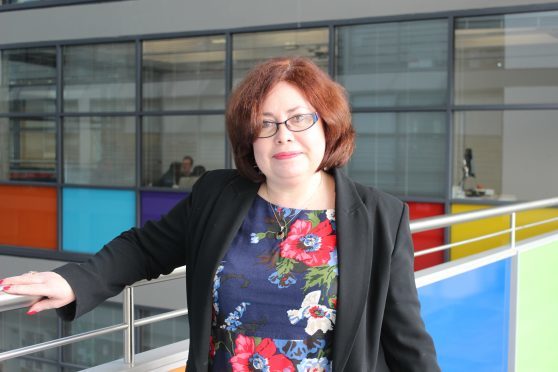Professor Sarah PedersenAccording to the latest report from the Office for National Statistics, two-thirds of women over 75 have never used the internet. The figure is slightly better for men over the age of 75, but still over half of this group has not been online in the last three months.
There are lots of reasons for this. Firstly, of course, is lack of knowledge and skills. For many in this age-group the IT revolution came too late. They did not learn how to use computers at school and had probably retired before the internet arrived at their workplace, and so there was no on-the-job training.
Another problem is cost – for someone on a small pension, the purchase of a computer or ipad or even internet-enabled mobile phone may not be possible, particularly if you are not convinced you will be able to make good use of it. There might also be physical or mental-health issues that impact on your ability to use the Internet.
For example, sight problems or arthritis might make it difficult to use ordinary keyboards or a computer mouse, memory loss may make the remembering of instructions or passwords a challenge. There are also fears of what may happen to you online. Media stories about internet crime, porn and cyberbullying can mean that safety concerns prevent some accessing the internet.
Problems like this are part of what is described as the ‘digital divide’ between the ‘haves’, who have access to the internet and know how to use it, and the ‘have-nots’, who do not. The statistics tell us that, in the UK, the ‘have-nots’ tend to be either older or disabled or both.
In contemporary British society, not having access to the internet can impact on all aspects of life. For example, those with no internet access cannot check their utilities bills and accounts online and so are more likely to miss payments or not challenge incorrect readings. S
ome companies now charge extra to continue to provide paper bills. It is not possible to use the ‘switching’ websites to ensure that you have the best price for your electricity or insurance. Whether it is buying train tickets or cinema seats, those who do it online get a better deal. Thus the digital divide can have an economic impact on older people who do not use the internet.
The internet can also offer the possibility of enhanced communication between older people and their family and friends. If family members have had to move away for education or employment reasons, using Skype, Facebook and emails can help older members of the family keep in touch with them, either for a chat online or at least seeing photographs and exchanging news by email. But, if the family has already moved, who will help you access the WiFi or download the right apps to get you started?
In Aberdeen, people over the age of 55 can find help with these and many other internet-related issues at a local charity called the Silver City Surfers. I went along this week to find out more about what they can do to help and was really impressed with the range of activities and assistance offered.
I went to a free drop-in session at the Citadel – there are drop-in sessions most days around the city. I was welcomed by some of their hospitality volunteers, sat down with a cup of tea, offered my choice from a very nice-looking range of biscuits (Tunnocks teacakes!) and had a chat about what goes on at the Silver City Surfers.
The purpose of the drop-in sessions is to help people improve their digital skills through free one-to-one tuition. You can come along with your own computer or ipad or phone or you can use one of the computers available there. You will be asked what it is that you are interested in learning, and then one of the volunteers will sit down with you and take you through it, helping you learn at your own pace.
You can tailor your learning to your own needs, whether that is getting started on Facebook, learning how to connect to the internet with WiFi, downloading photographs or sending emails. One of the ladies told me that she had learned how to download Spotify so she could listen to all her favourite music, someone else there was being helped with the emails on his mobile phone.
But there is far more to the Silver City Surfers than the drop-in sessions. Once a month there are very well-attended talks on subjects such as staying safe online, how the web works or healthy reading. These are run by presenter Graham Castle, who won a national Digital Hero award for his work last year. Silver City Surfers also goes out into the community to deliver local workshops based in community centres.
This is a really valuable resource that obviously adds so much to the lives of its users. If you are someone over the age of 55 who would like to learn more about how to access the internet, how to stay safe online, and how to use social media, apps and email, or if you know of anyone who might be interested, please get in contact with the Silver City Surfers. Their website is
http://silvercitysurfers.co.uk/about/
or you can contact them on 07799 371329.
